
A meeting of deep lyrical expression and adventurous collective free jazz, as Korean pianist Eunhye Jeong and bassist Michael Bisio expand their intuitive duo with the soulful power of Joe McPhee on tenor saxophone and the dynamic energy of drummer Jay Rosen, in a resonant, poetic session beautifully captured at Park West Studios for ESP-Disk.
In Stock
Quantity in Basket: None
Log In to use our Wish List
Shipping Weight: 3.00 units
Sample The Album:
Eunhye Jeong-piano
Michael Bisio-bass
Joe McPhee-tenor saxophone
Jay Rosen-drums
Click an artist name above to see in-stock items for that artist.
UPC: 825481509527
Label: ESP
Catalog ID: ESPDISK 5095CD
Squidco Product Code: 35963
Format: CD
Condition: New
Released: 2025
Country: USA
Packaging: Cardboard Gatefold
Recorded at Park West Studios, on March 8th, 2023, by Jim Clouse.
"When Michael Bisio heard Korean pianist Eunhye Jeong's ESP-Disk 2021 album NOLDA, he expressed interest in working with her. After a successful and riveting duo concert in Kingston, NY showed what a good match they were, ESP was eager to document their musical affinity. One of the concert attendees was avant-jazz sax icon Joe McPhee, who guested with the duo at their subsequent studio session along with one of ESP's favorite drummers, Jay Rosen. Magical moments abounded, as you can hear on this album. Recorded March 8, 2023 at Park West Studios by Jim Clouse, who also mixed and mastered. Produced by Steve Holtje for ESP-Disk."-ESP-DISK
Eunhye Jeong: Far Beyond Home -- notes by Paul r. Harding
I cannot fathom a piano. I cannot un-understand the being of a piano. The ubiquity of its universe. Small as a baby's hand and then as blinding as an octopus's swinging arm. All dimensional, intricately percussive sensitive as a drummer's feather brush.
Eunhye Jeong's piano takes us in, under, out, and above the brushing, the map and the lost.
Eunhye Jeong began music at the age of four but did not pursue music until she was nineteen. After a great love for reading, she discovered there were "too many agendas through language and text." Thus, she became a "detector" of The Music. In this new recording we discover pursuance beyond the orthodox understanding of song. More than the thin outgoing tide but all 88 keys make a shoreline. In this case an ancient and future beachhead, a world of other 'lettering', like King Sejons (15th century, created the Korean alphabet based on Korean traditional music) truly while "Thelonious Monk was the pivotal figure."
The daunting entrance of "Point Expands to World" un-tells an introduction of mystery and sure footing down an organic clean trail, cutting down every prop and 'special effect' in its way through pre-dawning sharp rays called musical notes. My kind of brave piano individualism served in a poignantly adventurous, lovingly dark, and yearning technique.
"Volcanic pansori vocalization and Black American musicians, artists... inspired me." Second track "And Then She Was There" is a winding stair to climb, banister (bass) to hold onto but no top stair, only a looking glass of reflection yet to look or reflect. Yes, a master short storyteller, each key on the piano knows her wanting while wanting for nothing from this "cosmic explorer" Her piano knows there is a such thing as nothingness. The percussive path is reminiscent of Andrew Hill's hands-a bubbling desert where everything but the oasis is unreal-finds everything numbered while Ms. Jeong's finds the numberless like one might find orphans of war. Each piano note a sign of water for the thirsty ear. And I say "unreal" not in a negative way but a way that genuinely matters to love-and that is originality! New, unmarked, without ambition, arpeggio's way past (within/without) "external pressures"
This entire recording is seeking without searching, vice-versa? In hope for "importers of knowledge" from more "powerful dominant countries" as each note of 'Points Multiply Constant Beauty' is a seedling, an inch or two of sound digging... to put... to not grow but to anticipate growing. To caress and dig the root before the bark forms. The pre of predawn intervals.
A sensation of blooming in the still dark morning makes her piano new light of a forest. Pianos find themselves. This pianist began with who she is; like a child doesn't know what childish means: a quandary of wisdom, of freedom. Of walking between Michael Bisio's dusky, diligent steps is path-finding in humanity's purest walk.
"Points Multiply Constant Beauty" arriving collectively (meaning: including the listener), departing individually at times; as Duke Ellington perhaps did at the end of his very first playing of his "Solitude." Eunhye stops ever so briefly for a duo coming closer to the safari trail's edge. To lead the way internally.
If we stop to inquire about the canon of The Blues (in trouble in a troubled world?) one only need stop for Joe McPhee's tenor to join the expedition. To speak on the "metaphysical qualities in common that seem to connect the people on a deeper level" the dimensions while the reality of market labelling of a society thrown into the lion's den of commodity competition is no less a sin than killing and starving a child in military invasions. Pain, as in the bells of "Morning Bells Whistle Bright," have my ears lift its hat and wipe my brow of the sweatless ivories. Of the leaves without trees, vice versa? Falling up in "Drinking Galactic Water."
This music "concerns real energy vibrating through the music past present future" is about where the drone drones. Where the hope "is that people liberate themselves through their own individual power" like "Morning Bells Whistle Bright" original says every life starts from the patience about pre-birthing, waiting for the first sound (after birth!) McPhee's horn brings this melodic anxiety with his saxophone's new yet ancestral terms for hope. "This ideal humanity is aligned with nature at the same time it is a way to reconnect with ancient wisdom"
The other tales of her journey warrant stopping to make camp for her piano kindling. And "connect: something of an old soul in Eunhye offers... more free esoteric than Avant-Garde appealing. Something allergic to cliché and postcard swing in her mindful hands. Overwhelming if simplicity can be! Day-breaking in smallest loud places. On the other side of the moon is not dark shadow in Eunhye's piano but rather an introducing of illumination. With no map or chart something neither crowded, toxic, or of intentions to impress (in a Jazz propaganda intellect) but rather rub down, as if each key an unknown oil of sound, and without force or intimidation, but by way of making a verb out of the word one, this piano reinvents itself... as all great stories due. The sounds between the ones where whatever we know vanishes into a freedom of conscious heart.
This musician is an artist. This pianist is a pursuer not of dreams but the making of dream in the purest sense. In the lush of "Jaybird." The themes being crests cutting back and forth through qualms of rising sea, this album is where many of the great pianists of my day wished to enter of the horizon of; where the McCoy Tyner and Herbie Hancock influences of the '60s/'70s kept faith in a color called tomorrow. In a switchblade peeled apple skin shining before biting music. Interplaying broken dates or love on first sight... in prologues that are really index. That is not a piano in Eunhye's hands but rather a structure of a circling reinventing itself through interplay... through sudden stops and go-s that turn time itself into tales between seed and tree. Fingers of her own dimensions... from branches somersaulting in neither slow nor over-pronounced motions... nor high diving tightrope chords... but the blood cells and nervous systems of a forest called The Music
If light sound than welcome this dawn. No cliches means not contrived are her colors and tints but rather her turning the piano into a mind, an opening to first light lasting as long as it takes for the courage of predawn Stride, future Rag, and the present new sonnets of piano from "far beyond home" where "every creation grows from a particular soil, its birthplace... shaped by the complexity of its reality," like "Coda for Tomorrow."
Artist Biographies
• Show Bio for Eunhye Jeong "Pianist/composer Eunhye Jeong is a creative musician with a critical mind that keeps expanding her musical world with diligent research. She has performed with legendary Wadada Leo Smith, a multiple awards-winner, a Pulitzer Prize nominee and an innovative composer/trumpeter as a pianist of NDA ensemble which performed one of most ECM's celebrted albums Followed by her previous albums Turtle Suite (2014), Chi-Da (2018) and 2 Begets 3 (2018) that are each in a disparate musical language, she is soon releasing her fourth album In 2019, she was a panel in the colloquium Jeong continues to hold and develop her ongoing theme since 2011 that is to to revive the historical and cultural continuum severed both forcefully and voluntarily over time, through her musical practice." ^ Hide Bio for Eunhye Jeong • Show Bio for Michael Bisio "Michael Bisio, bassist/composer, has eighty five recordings in his discography, twenty four of these are split evenly between leader/co-leader, ten of them document his extraordinary association with modern piano icon Matthew Shipp. Michael has been called a poet, a wonder and one of the most virtuosic and imaginative performers on the double bass. Nate Chinen in the New York Times writes : "The physicality of Mr. Bisio's bass playing puts him in touch with numerous predecessors in the avant-garde, but his expressive touch is distinctive;..." As a composer Michael has been awarded nine grants and an Artist Trust Fellowship Collaborators include Matthew Shipp, Joe McPhee, Charles Gayle, Connie Crothers, Whit Dickey, Ivo Perelman, Barbara Donald, Newman Taylor Baker, Rob Brown, Sonny Simmons and Sabir Mateen." ^ Hide Bio for Michael Bisio • Show Bio for Joe McPhee "Joe McPhee, born November 3,1939 in Miami, Florida, USA, is a multi-instrumentalist, composer, improviser, conceptualist and theoretician. He began playing the trumpet at age eight, taught by his father, himself a trumpet player. He continued on that instrument through his formative school years and later in a U.S. Army band stationed in Germany, at which time he was introduced to performing traditional jazz. Clifford Thornton's Freedom and Unity, released in 1969 on the Third World label, is the first recording on which he appears as a side man. In 1968, inspired by the music of Albert Ayler, he took up the saxophone and began an active involvement in both acoustic and electronic music. His first recordings as leader appeared on the CJ Records label, founded in 1969 by painter Craig Johnson. These include Underground Railroad by the Joe McPhee Quartet (1969), Nation Time (1970), Trinity (1971) and Pieces of Light (1974). In 1975, Swiss entrepreneur Werner X. Uehlinger release Black Magic Man by McPhee, on what was to become Hat Hut Records. In 1981, he met composer, accordionist, performer, and educator Pauline Oliveros, whose theories of "deep listening" strengthened his interests in extended instrumental and electronic techniques. he also discovered Edward de Bono's book Lateral Thinking: A Textbook of Creativity, which presents concepts for solving problems by "disrupting an apparent sequence and arriving at the solution from another angle." de Bono's theories inspired McPhee to apply this "sideways thinking" to his own work in creative improvisation, resulting in the concept of "Po Music." McPhee describes "Po Music" as a "process of provocation" (Po is a language indicator to show that provocation is being used) to "move from one fixed set of ideas in an attempt to discover new ones." He concludes, "It is a Positive, Possible, Poetic Hypothesis." The results of this application of Po principles to creative improvisation can be heard on several Hat Art recordings, including Topology, Linear B, and Oleo & a Future Retrospective. In 1997, McPhee discovered two like-minded improvisers in bassist Dominic Duval and drummer Jay Rosen. The trio premiered at the Vision Jazz Festival in 1998 but the concert went unnoticed by the press. McPhee, Duval, and Rosen therefore decided that an apt title for the group would be Trio X. In 2004 he created Survival Unit III with Fred Lonberg-Holm and Michael Zerang to expand his musical horizons and with a career spanning nearly 50 years and over 100 recordings, he continues to tour internationally, forge new connections while reaching for music's outer limits." ^ Hide Bio for Joe McPhee • Show Bio for Jay Rosen "Jay Rosen (born November 20, 1961) is an American jazz drummer. He is a member of Trio X with Joe McPhee and Dominic Duval and performs in Cosmosomatics with Sonny Simmons. At age 10, Rosen became interested in jazz drumming after seeing Tony Williams perform with Sonny Rollins. He took lessons from Tracy Alexander, son of Mousey Alexander (with an occasional lesson from the elder Alexander). Later, he would study briefly with Barry Altschul. Around age 18, Rosen became a professional musician. He worked at studios, weddings, and cocktail lounges in rock, rhythm and blues, country, jazz, and Brazilian music. His recording career in improvised music began in the mid-1990s, when he recorded Split Personality (GM Records) with Mark Whitecage and Dominic Duval. He began an association with the CIMP label in 1996, and has also recorded for Cadence). Todd Jenkins describes Rosen and Duval as the "house rhythm section" for CIMP, given the number of recordings on which they have appeared.:231 Since 1998, Rosen has performed with Joe McPhee and Dominic Duval in Trio X.:360 In 2000, he joined Cosmosomatics, a quartet with saxophonists Sonny Simmons and Michael Marcus and bassist William Parker.:114 Rosen describes himself as "a musician who plays percussion" rather than "'just a drummer.'" He uses a set of small cymbals that he approaches "like a string player, or a reed player," and his drum kit includes objects such as a boat propeller and a set of organ pipes that he activates with foot-driven bellows. Although Rosen is associated with free improvisation, he questions whether the music he plays is "free:" "While 'free music' indicates that you're free to play whatever you want to play and you're not following chord progressions, and there's no time, there's no this, no that...The way I've been playing free music, with my constituents, doesn't really follow those guidelines. When we play, it's very well put together, in actuality. We're not just blowing to blow; there's listening going on, there's concerted effort at construction and organization, at putting things together - at minute levels - that hardly go on in 'free music' anymore." ^ Hide Bio for Jay Rosen
4/2/2025
Have a better biography or biography source? Please Contact Us so that we can update this biography.
4/2/2025
Have a better biography or biography source? Please Contact Us so that we can update this biography.
4/2/2025
Have a better biography or biography source? Please Contact Us so that we can update this biography.
-Wikipedia (https://en.wikipedia.org/wiki/Jay_Rosen_(drummer))
4/2/2025
Have a better biography or biography source? Please Contact Us so that we can update this biography.
Track Listing:
1. Point Expands to World 04:37
2. And Then She Was There 05:28
3. Dusts into Substantiality 06:38
4. Points Multiply Constant Beauty 09:11
5. Drinking Galactic Water 06:15
6. Morning Bells Whistle Bright 13:18
7. Disclosure 05:35
8. Jaybird 07:48
9. Superpreternatural 06:33
10. Coda for Tomorrow 08:07
ESP
Improvised Music
Jazz
Free Improvisation
Collective & Free Improvsation
NY Downtown & Metropolitan Jazz/Improv
Duo Recordings
Quartet Recordings
Joe McPhee
Staff Picks & Recommended Items
New in Improvised Music
Recent Releases and Best Sellers
Search for other titles on the label:
ESP.


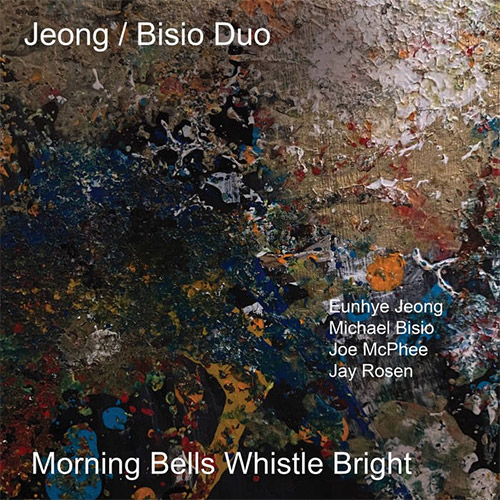
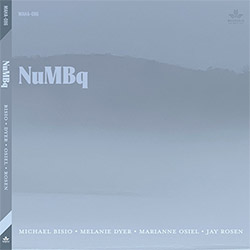


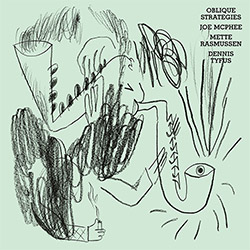
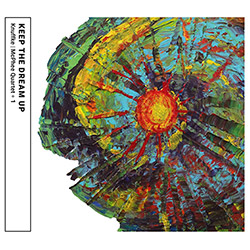
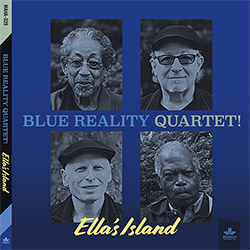


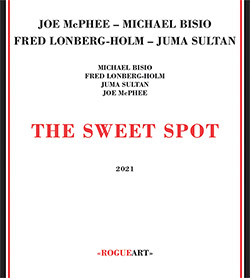
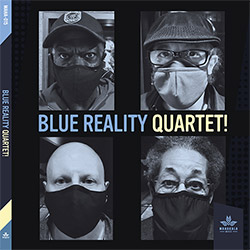
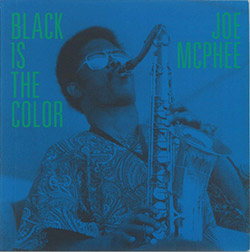
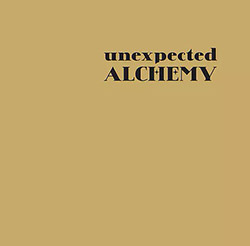
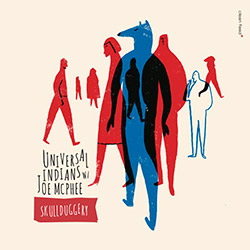
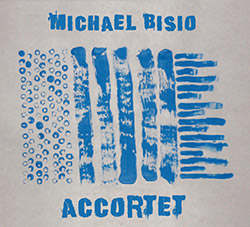


![Niblock, Phill / Anna Clementi / Thomas Stern: Zound Delta 2 [VINYL]](https://www.teuthida.com/productImages/misc4/34623.jpg)
![Yoko, Ono / The Great Learning Orchestra: Selected Recordings From Grapefruit [2 CDs]](https://www.teuthida.com/productImages/misc4/35841.jpg)
![Brotzmann, Peter / John Edwards / Steve Noble / Jason Adasiewicz: The Quartet [2 CDs]](https://www.teuthida.com/productImages/misc4/35975.jpg)
![Brotzmann, Peter / John Edwards / Steve Noble / Jason Adasiewicz: The Quartet [VINYL 2 LPs]](https://www.teuthida.com/productImages/misc4/35976.jpg)
![Thomas, Pat: The Solar Model of Ibn-Al Shatir [VINYL]](https://www.teuthida.com/productImages/misc4/36044.jpg)
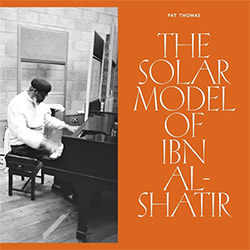



![Rodrigues, Ernesto / Nuno Torres / Guilherme Rodrigues: Whispers In The Moonlight - In Seven Movements [2CDs]](https://www.teuthida.com/productImages/misc4/35765.jpg)



![Cocks, Laura: FATHM [VINYL]](https://www.teuthida.com/productImages/misc4/36055.jpg)










![Ackerley / Prymek / Turner: All Hope With Sleeping Minds [CASSETTE]](https://www.teuthida.com/productImages/misc4/35950.jpg)
![Myers, David Lee : Tin Drop Tear [BOOK w/ DOWNLOAD]](https://www.teuthida.com/productImages/misc4/36030.jpg)




![Schindler, Udo / Sandy Ewen / Damon Smith: Munich Sound Studies Vols. 4, 5 & 6 [3 CDs]](https://www.teuthida.com/productImages/misc4/35966.jpg)
![Turbulence Orchestra & Sub-Units: Smear Out the Difficulties (Double Live) [2 CDs]](https://www.teuthida.com/productImages/misc4/36048.jpg)


![Perelman, Ivo / Tyshawn Sorey: Paralell Aesthetics [2 CDs]](https://www.teuthida.com/productImages/misc4/35871.jpg)


![Sjostrom, Harri: SoundScapes #4 Festival Berlin 2023 [3 CDs]](https://www.teuthida.com/productImages/misc4/35874.jpg)



![Glenn, Jordan: Flustered [CASSETTE]](https://www.teuthida.com/productImages/misc4/35948.jpg)










![Olencki, Weston : Pearls Ground Down To Powder [VINYL]](https://www.teuthida.com/productImages/misc4/35956.jpg)
![Myers, David Lee: Oculus [2CDs]](https://www.teuthida.com/productImages/misc4/35857.jpg)


![dustsceawung: dustsceawung [CASSETTE w/ Download]](https://www.teuthida.com/productImages/misc4/35753.jpg)




![Halls of the Machine: Atmospheres For Lovers And Sleepers [CASSETTE w/ DOWNLOAD]](https://www.teuthida.com/productImages/misc4/35806.jpg)



![AHC (Alexander Cooper): Lase [2 CDs]](https://www.teuthida.com/productImages/misc4/35754.jpg)



![Fagaschinski, Kai / Yan Jun : Graveyard Processions [VINYL w/ DOWNLOAD]](https://www.teuthida.com/productImages/misc4/35474.jpg)









![Zorn, John / JACK Quartet: The Complete String Quartets [2 CDs]](https://www.teuthida.com/productImages/misc4/35609.jpg)

![Lonsdale, Eden: Dawnings [2 CDs]](https://www.teuthida.com/productImages/misc4/35480.jpg)







![Sanna, Claudio: Compositori Sardi Contemporanei II [2 CDs]](https://www.teuthida.com/productImages/misc4/35317.jpg)







![Zurria, Manuel: Fame di Vento [3 CDs]](https://www.teuthida.com/productImages/misc4/35167.jpg)


![Electric Bird Noise / Derek Roddy: 8-10-22 [CD EP]](https://www.teuthida.com/productImages/misc4/35970.jpg)








![Elephant9 : Mythical River [VINYL]](https://www.teuthida.com/productImages/misc4/34624.jpg)



![Elephant9 with Terje Rypdal: Catching Fire [VINYL 2 LPs]](https://www.teuthida.com/productImages/misc4/35355.jpg)
![Deerlady (Obomsawin, Mali / Magdalena Abrego): Greatest Hits [VINYL]](https://www.teuthida.com/productImages/misc4/34876.jpg)







![Surplus 1980: Illusion of Consistency [CD]](https://www.teuthida.com/productImages/misc4/35069.jpg)
![Staiano, Moe: Away Towards the Light [VINYL + DOWNLOAD]](https://www.teuthida.com/productImages/misc4/35037.jpg)



![Caveira (Gomes / Sousa / Abras / Ferrandini): Ficar Vivo [VINYL]](https://www.teuthida.com/productImages/misc4/34643.jpg)
![Coley, Byron: Dating Tips for Touring Bands [VINYL]](https://www.teuthida.com/productImages/misc4/17906.jpg)

![Lost Kisses: My Life is Sad & Funny [DVD]](https://www.teuthida.com/productImages/misc4/lostKissesDVD.jpg)